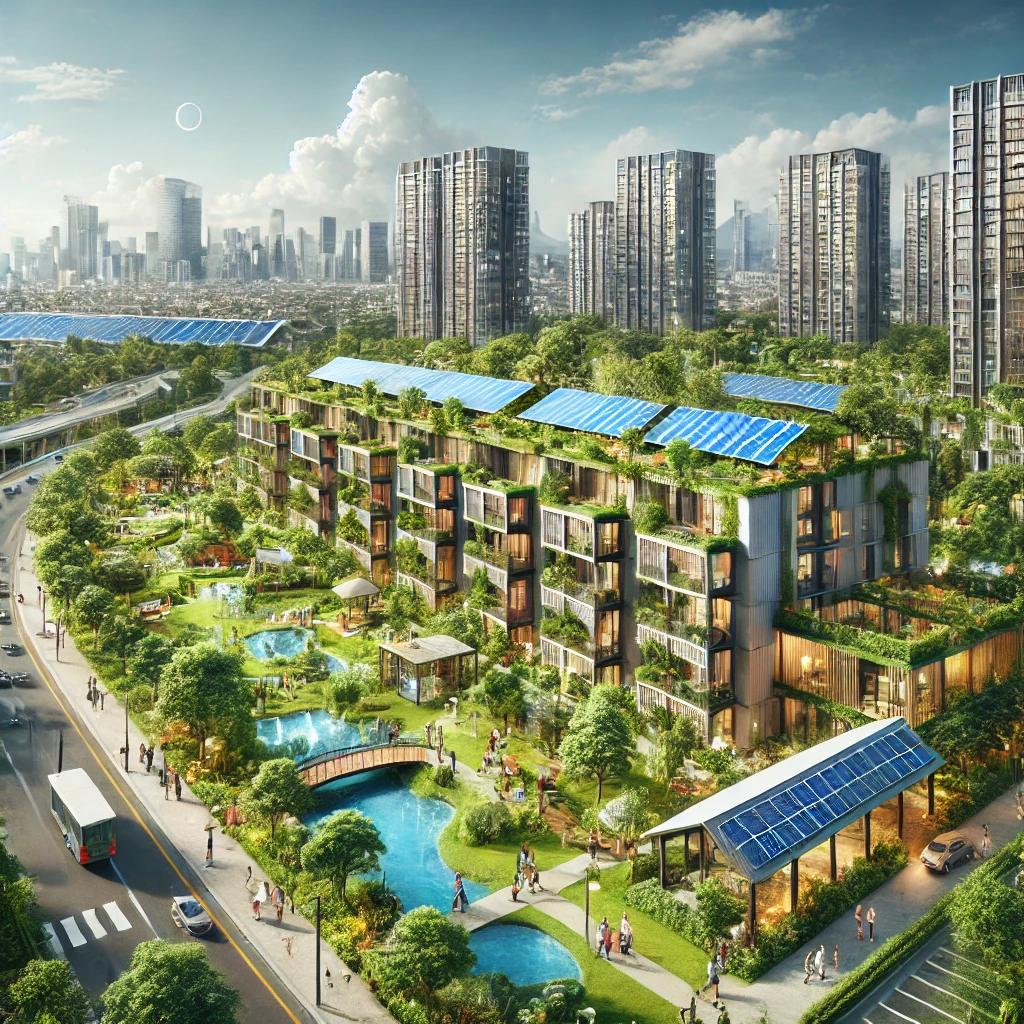Sustainable development has become a pivotal focus in the real estate industry, driven by environmental concerns and the need for long-term solutions to urbanization challenges. As the world grapples with climate change, sustainable practices in real estate are no longer optional but essential for creating eco-friendly, efficient, and livable spaces.
What is Sustainable Development in Real Estate?
Sustainable development in real estate involves designing, constructing, and managing properties in ways that minimize environmental impact, optimize resource usage, and enhance the quality of life for occupants. This approach integrates eco-friendly building materials, energy efficiency, water conservation, and waste reduction to achieve environmental and economic balance.
Key Principles of Sustainable Development
- Energy Efficiency:
- Use of solar panels, LED lighting, and energy-efficient HVAC systems.
- Designing buildings to maximize natural light and ventilation.
- Water Conservation:
- Installing rainwater harvesting systems and low-flow plumbing fixtures.
- Landscaping with drought-resistant plants.
- Eco-Friendly Materials:
- Utilizing recycled or locally sourced materials.
- Avoiding harmful chemicals in construction.
- Green Certifications:
- Adopting LEED (Leadership in Energy and Environmental Design) or IGBC (Indian Green Building Council) certifications.
- Urban Planning:
- Ensuring proximity to public transport to reduce reliance on personal vehicles.
- Developing mixed-use spaces to promote walkability and reduce urban sprawl.
Benefits of Sustainable Development in Real Estate
- Environmental Impact:
- Reduced carbon emissions and resource depletion.
- Preservation of biodiversity and ecosystems.
- Economic Advantages:
- Lower operating costs through energy and water savings.
- Increased property value and marketability.
- Enhanced Quality of Life:
- Healthier indoor air quality and comfortable living spaces.
- Access to green spaces and sustainable community amenities.
The Role of Technology
Technology plays a significant role in sustainable real estate practices. Smart home systems, IoT devices, and advanced building management systems (BMS) help monitor and optimize energy use. Additionally, innovations in materials, such as carbon-neutral concrete, are revolutionizing construction methods.
Uplivv: Leading the Way in Sustainable Real Estate
At Uplivv, we believe that sustainable development is not just a trend but a responsibility. Our projects are designed with a commitment to eco-friendly practices, ensuring that every home we build contributes to a greener future. By incorporating modern technologies, sustainable materials, and innovative designs, Uplivv sets a benchmark for environmentally responsible real estate.
Challenges and Opportunities
While sustainable development offers numerous benefits, it also faces challenges such as higher initial costs and a lack of awareness among stakeholders. However, government incentives, increasing consumer demand, and advancements in green technologies present immense opportunities for growth in this sector.
Conclusion
Sustainable development is revolutionizing the real estate industry by harmonizing it with global environmental priorities. By adopting eco-conscious practices, developers, investors, and homeowners can create a future that balances economic viability with environmental stewardship. Prioritizing sustainability ensures the real estate sector becomes a cornerstone in fostering a greener and more resilient world. Uplivv is proud to be at the forefront of this transformation, building homes that reflect our commitment to a sustainable and prosperous tomorrow.
